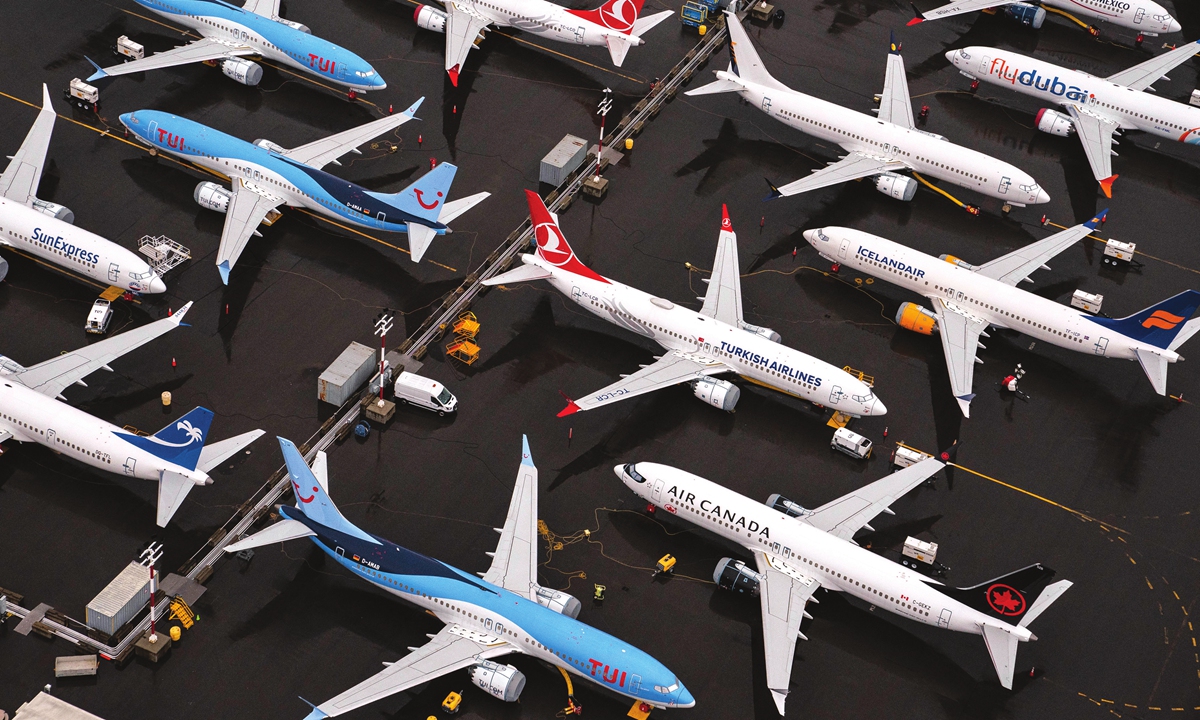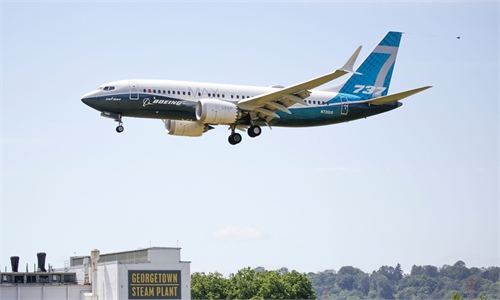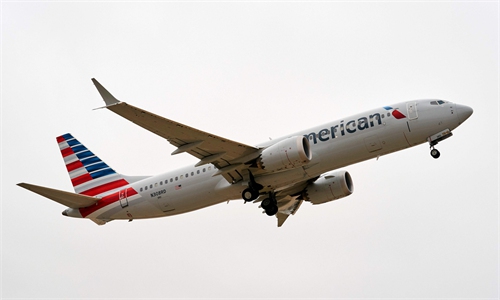COMMENTS / EXPERT ASSESSMENT
Return of Boeing 737 Max to China dependent on safety, not political considerations

Boeing 737 Max airplanes sit parked at the company's production facility in Renton, Washington DC, the US on November 18. Photo: VCG
As Boeing 737 Max has got the nod from the Federal Aviation Administration to fly again, when the airplane could return to China's airspace is under the spotlight, especially against the backdrop of rising China-US tensions. As the first regulator to halt the flying of the problematic plane, the Civil Aviation Administration of China (CAAC) made the decision based on its responsibility to ensure the safety of China's flying public.The head of Europe's aviation safety agency (EASA), Patrick Ky, recently told media that he is certain Boeing's 737 Max is now safe to fly, as he is cited by BBC on Monday, signaling that the airliner may resume service in Europe soon, after it obtained permission in both the US and Brazil.
Boeing 737 Max series was grounded in March 2019 following two deadly crashes that happened within half a year and claimed 346 lives.
Taking into account of the responsibility to ensure the safety of people's lives and zero tolerance for aviation risks, CAAC became the first regulator to call off the service of Boeing 737 Max. A total of 96 airliners of the series have been grounded in China, the largest number in the world.
To confirm that any safety risks of the series have been defused, the CAAC may require review of testing materials of Boeing 737 Max, among other measures. What may take longer for Boeing is winning back the flying public's trust.
In fact, a US congressional report questioned the recent tests on the 737 Max, suggesting that they were flawed and accused Boeing of "inappropriately" influencing pilots during testing of the plane, according to German news outlet Deutsche Welle.
Due to the trust crisis brought about by fatal incidents involving 737 Max jets, Boeing has witnessed a spiral of loss and public relations disaster.
Striving to reverse its predicament, the aircraft manufacturer has been seeking permission across the world to bring the series back into service. China is one of the critical markets for Boeing.
CAAC said there are set rules that were made public, including design changes to the aircraft that must be approved for airworthiness. Also, pilots must be fully and effectively trained, and there must be a clear investigation outcome from the two tragic accidents. In October, Feng Zhenglin, head of the CAAC, said that "as long as [the aircraft] meets the three requirements, we are happy to see it back in service."
Different from the US and EU civil aviation markets, China's market maintains a huge momentum helped by the nation's resilient and fast development.
While China's commitment to develop its own airplanes is steadfast, its market is also open to global developers, including Airbus and Boeing. The global aviation market is evolving. With widening expansion, the market will develop faster to be aided by benign competition among different players.
Despite the backdrop of Trump administration's relentless trade confrontations with China and its tireless crackdown on Chinese firms, multinationals, such as Boeing, should focus on market demand to offer competitive high-quality products and avoid vicious competition on political calculations. The promising Chinese market will offer significant opportunities to cultivate its own domestic airplane industry, as well as a space for global players to thrive.
The article was compiled based on an interview with Wang Yanan, an industry expert and chief editor of Aerospace Knowledge. bizopinion@globaltimes.com.cn


